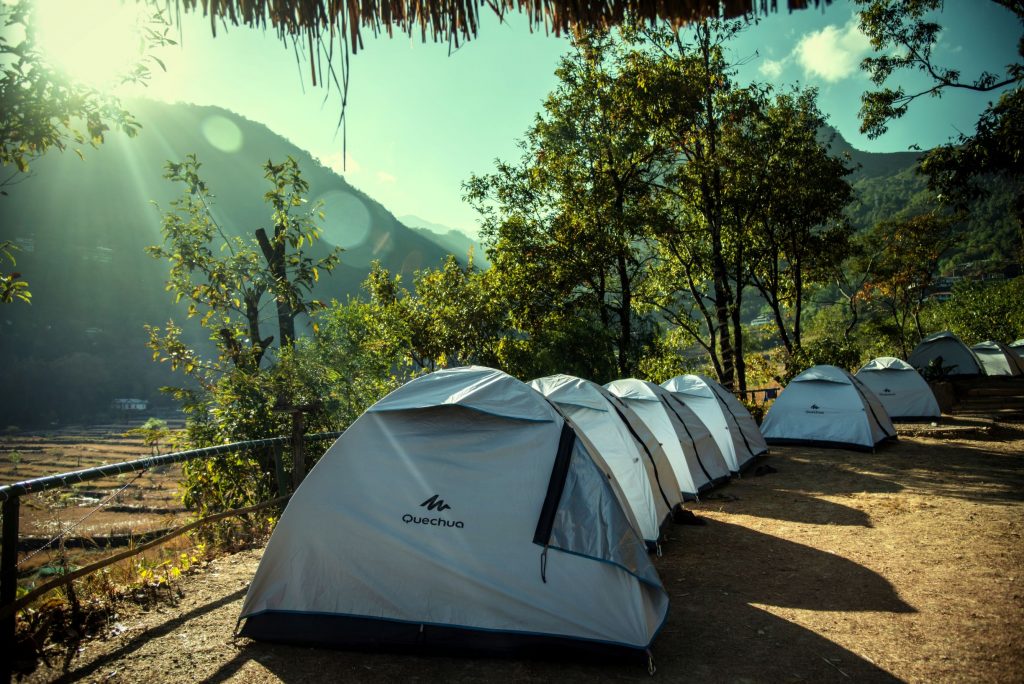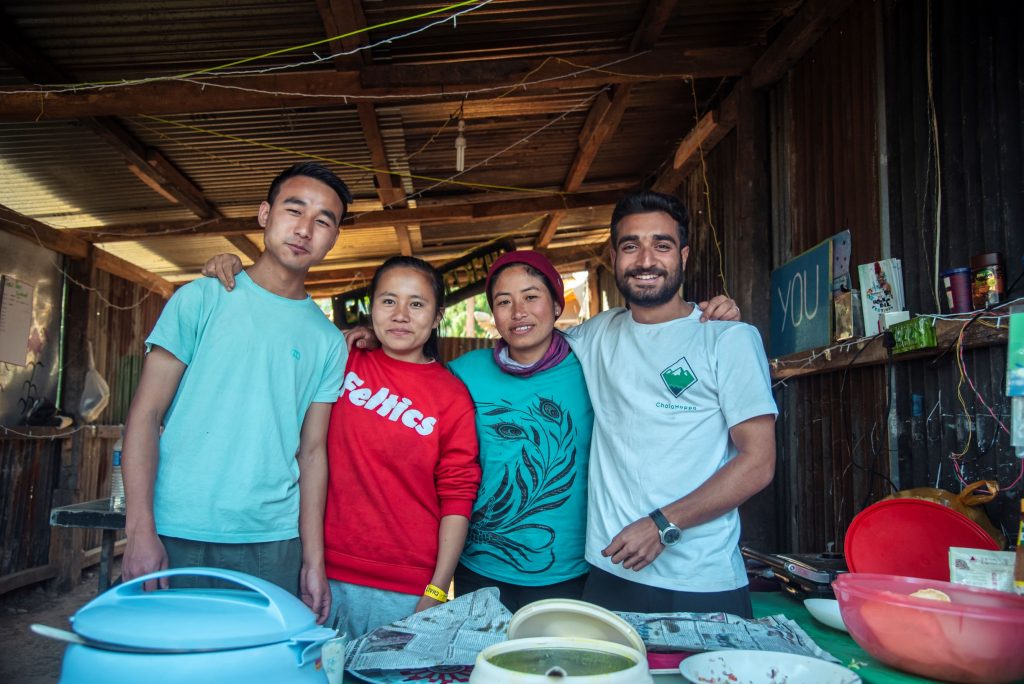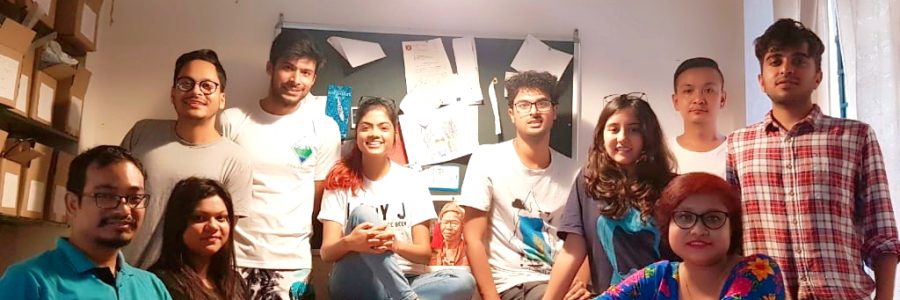If the core value of entrepreneurship is creating leaders who can engineer a social impact right from the grassroots, startup from North East India, ChaloHoppo is trying to do just that.
Founded in 2016 by 4 young men – John Raphael, Nishant Sinha, Chetan Jalan, and Devraj Barooah – ChaloHoppo isn’t just another travel company trying to woo tourists to visit the traditional locations in North East India. It spots offbeat places in the North East and curates activities that are quintessentially local, which the tourists can experience only in this part of the country. Apart from conducting trekking expeditions and holding campsites, ChaloHoppo organizes unique activities that allow tourists to get a first-hand experience of the North Eastern lifestyle.
From arranging football match between tourists and Khasi boys in Meghalaya and organizing storytelling sessions with the locals around the evening bonfire, to involving visitors in hand-fishing in Ziro, mask-making in Majuli, and pitha-baking in Balipara, the startup is always bustling with novel ideas to offer authentic, out-of-the-box experience to the travellers so that they go back carrying a chunk of North East India in their hearts.
As John says, “Our vision is to bridge the gap between North East India and the world. Travelling is the best medium to achieve the same through the creation of authentic local experiences.”

The most crucial aspect of ChaloHoppo is it’s community involvement model. The startup ties-up with local partners at every level of execution. For example, the startup’s permanent campsite at Jakhama Village in Nagaland that acts as the basepoint for the Dzukou trek, is entirely managed and maintained by the local land owner, while ChaloHoppo takes care of the sales and marketing, with an equal profit-sharing between both the parties. The campsite that also hosts tourists attending the Hornbill Festival in December has a team of around 25 locals running it. “They are the real heroes while we are just there, assisting them if they need any help,” John says. The same applies to the campsite at Ziro, Arunachal Pradesh as well.
Not just the campsites, the local involvement is conspicuous in every activity that the startup undertakes. Every trekking expedition that ChaloHoppo leads is accompanied by a local representative, thus offering constant revenue earning opportunities to the latter. The startup works with a vision to bridge the gap between North East India and the rest of the world. And they have got on board the people of the region in realizing their vision. In the process, the startup has also been impactfully addressing the problem of unemployment in the region.
Barring the initial challenge of building trust among the people, ChaloHoppo has had a fairly smooth journey. The fact that they have been able to dissolve the most common inhibitions among people travelling to North East India by ensuring safety, hospitality, and relatively smoother journeys while providing quintessential local experience has helped ChaloHoppo stay ahead in the race. Perhaps, that’s the reason that the startup has been able to gain formidable traction in the 3 years of its operation sans raising a fund. With the founders having a strong base in Mumbai, they have been able to draw a good number of tourists from the city, besides Bangalore, Hyderabad, Pune, Kochi and Ahmedabad. The startup is also initiating B2B tie-ups with companies in Asia and Europe to spur the flow of foreign tourists in the region.

ChaloHoppo had earned a revenue of Rs. 2.4 crore in 2018 and strive to close it at Rs. 3.9 crore in 2019. Their landmark achievement has been to become, probably, the first company to start fixed departures to Mizoram. “We have identified small villages in Mizoram that can offer wholesome experience to the travellers,” John reveals.
Apart from curating trips and organizing local flavoured activities, ChaloHoppo also plans to aggregate homestays in the region. They have already identified a few homestays, whom they try to promote on a pan India scale and get bookings in exchange for a cost. As John quotes, “We are trying to get people to book those homestays against a cost deposited by the homestay owners. The owners get to earn revenue while we keep a fee for promoting and connecting them with the tourists. It’s a win-win situation for both of us.”
However, the startup is yet to go all out with the homestay project. “Converting homes into homestays is a lengthy process, requiring thorough training of the locals to ensure hygienic and sound stay for the tourists. It would also demand an infallible back end infrastructure, R&D, and a strong marketing team on our part. We intend to go about it assertively, which would require a hefty fund,” the founder explains.
In fact, fund has been one of the reasons for ChaloHoppo to have applied for incubation at Assam Startup – The Nest. The startup has had fruitful networking opportunities and interaction with the mentors at The Nest, which could help them realize their homestay project in the days ahead. The founders are upbeat about the emerging startup culture which the Assam Startup initiative is trying to build in the region. Like John says, “Getting a platform like this really helps to build an atmosphere where everyone is trying to help each other grow, which we had lacked earlier.”
By: Satarupa Mishra












